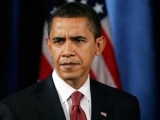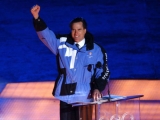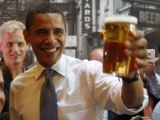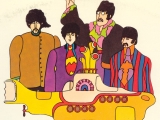Politics back to homepage
 |
Obama’s SSN Not Valid?(1) We all remember Donald Trump’s press release when Obama’s birth certificate surfaced. Well, there’s a new challenge to the legitimacy of Obama’s citizenship, this time from an Ohio senior mother-of-seven Susan Daniels. Daniels has been a licensed private investigator since 1995 and she has experience vetting social security numbers for thousands of other clients. What Daniels found is that Obama’s SSN has a prefix of “042” which, according to her investigation, is reserved for individuals who register in Connecticut, and that Obama’s SSN was issued in 1977 in Connecticut. Daniels further makes the case that there is no record of Obama visiting Connecticut during that time frame, he would have been 15 years old and living in Hawaii. In checking other records, such as DMV and IRS records, Daniels came across another anomaly in the president’s birth date. There is the discrepancy of the 08/04/1961 and 04/08/1961 birth dates, which could be a simple mistake, but she also found a birth year of 1890 repeatedly. Daniels explains this discrepancy by claiming that the 042 SSN had been previously issued to a Connecticut resident born in 1890. This assertion can be verified by examining the microfilm of the original SS-5 application attached to that particular SSN. Daniels, however, does not have access to that information which is why she filed suit in the Ohio courts. She also asked the court to issue an injunction against Obama’s name appearing in the Ohio ballot until this is cleared up. Despite establishing a clear paper-trail, it is unlikely that the injunction will be filed, or that even mainstream media will pick up this story. |
 |
New virus dubbed “Flame” Resembles Stuxnet(0)
A new highly sophisticated computer virus capable of gathering data files, changing settings, and even turning on microphones to record conversations has been discovered. Researchers at Kapersky Lab say this virus may have the same origins as the famed Stuxnet virus which attacked Iran’s nuclear program in 2010. More than likely the attack was made by a government intelligence agency, Iranian officials have accused Israel and the United States. However there is still no certain knowledge of the exact origin of either virus. The US Defense Department declined comment. |
 |
Mitt Romney Saved The Olympics(0)
During the commercial Romney mentions how he “saved the Olympics.” The way he makes his pronouncement sounds like an arrogant way to state this fact. Shouldn’t he have been a little more contrite. Maybe saying, “I was brought in to help bring the Olympics to the US.” This sounds much more preferable than stating he “saved the Olympics.” I figured I would investigate the issue in general of him saving the Olympics. The Olympics Romney was speaking of was the Salt Lake City Olympics in 2002. After the September 11th attack in 2001, there were a lot of issues including financial that started talks about the possible cancellation of the Olympics. The thought of cancellation of the Olympics was halted after the Governor of Utah, Mike Leavitt, flew out to Washington and met with President Bush. Romney was the head of the Salt Lake Olympics organizing committee, but how he personally ‘saved’ these Olympics seems like political rhetoric. |
|
Where Did Romney’s Money Come From?(0)
Bain & Company, a management consulting firm, hired Mitt in 1977 at the age of 30. After one year, Mitt was made a vice president. Vice president at 31, after 1 year. Then in 1984 Romney went to the spin off Bain Capital. Bain Capital was a venture capital firm. Venture Capital firms invest in new companies providing needed capital. Staples Inc was one of Bains first successes. Bain Capital later morphed in to leverage buyouts. Leveraged buyout firms acquire controlling interests in a company’s equity where a significant percentage of the purchase price is financed through leverage borrowing. After buying these firms, Bain Capital would soon sell them. Romney reaped so much money through this buying and selling of companies to make himself a multimillionaire. Did Mitt (real first name Willard) earn his money? Yes, he did. De he take an inordinate amount of money for someone who just finagled with the bottom line of buying and selling a company? Yes. My question is why did someone who really did not contribute anything to the bottom line of any of these companies make so much money? Why did someone who never spent one minute working on a real product get rich? Romney did not create any product. Mitt just worked for a company that figured out how to buy a company that needed money on the cheap. Then, not long after, sell the company for more than they paid for it. Mitt Romney good businessman? Maybe. Good salesman. Definitely. Is that what the US needs? Another good salesman? |
 |
Beer is helping the economy(1) A study released this week by the University of Northern Colorado, suggest that breweries, are enhancing the local economy. According to CSU economists, Martin Shields and Michael Marturana, the six Fort Collins breweries employ over 938 people and boost the local economy by more then $83 million dollars. The report claims the breweries employment rate has steadily grown in the last ten years by 22%. Other business in Larimer County have only grown about 6.3%. Further data from the report suggests that each job at a local brewery, produces another 1.7 more jobs to the country, further enhancing the local economy by almost $142 million dollars. The researchers believe there is other ancillary revenue being generated by restaurants that brew beer, like Rock Bottom in Loveland, however those sources of beer revenue were not considered in the study, because the food revenues would have been too hard to discern. Although Loveland’s breweries were not calculated in the study, do to data issues, the region is forecasted to be haven for continued brewery growth. One such brewery in Loveland was opened in 2010, Grimm Brothers. This brewery has been constantly expanding it’s operation, because the demand requires expansion. The breweries beer are currently available in most area restaurants, but a spokesperson for the brewery, say new technology is planned to make the beer available to liquor stores. Governor John Hickenlooper calls the region, “the Napa Valley of craft beer.” According to a book, “Mountain Brew” the state has 110 breweries and produces more beer then any other state. Many experts, credit the laws and regulations of Colorado as a reason why the industry enjoys study growth in the state. Some have credited Colorado as a state of adventure enthusiasts and they say it goes hand in hand with a desire to test and cultivate extremes. |
 |
Americans are More Religious than Others(0) Religious devotion sets the United States apart from some of its closest allies. An AP-Ipsos polling found that Americans acknowledge unquestioning faith in God and are far more willing to mix religion and politics than people in other countries. Only Mexicans come close to Americans in accepting faith. But unlike Americans, Mexicans strongly oppose the clergy lobbying lawmakers, in line with the nation’s historical conflict with church influence. “In the United States, you have an abundance of religions trying to motivate Americans to greater involvement,” said Roger Finke, a sociologist at Penn State University. “It’s one thing that makes a tremendous difference here.” The polling was carried out in May in the United States, Australia, Britain, Canada, France, Germany, Italy, Mexico, South Korea and Spain. Almost all U.S. respondents said faith is vital to them and only 2 percent said they do not believe in God at all. Almost 40 percent said religious leaders should try to influence policymakers, markedly higher than in other countries. “Our nation was founded on Judeo-Christian policies and religious leaders have an obligation to speak out on public policy, otherwise they’re wimps,” said David Black, a retiree from Osborne, Pa., who agreed to be interviewed after he was polled. In contrast, 85 percent of French protest clergy activism — the strongest opposition of any nation surveyed. France has strict control on public religious expression and, according to the poll, 19 percent are atheists. South Korea is the only other nation with that high a percentage of nonbelievers. Australians are generally divided over the importance of faith, while two-thirds of South Koreans and Canadians said religion is central to their lives. People in all three countries strongly oppose mixing religion and politics. Researchers disagree over why people in the United States have such a different religious outlook, said Brent Nelsen, an expert in politics and religion at Furman University in South Carolina. Some say rejecting religion is a natural response to modernization and consider the United States a strange exception to the trend. Others say Europe is the anomaly; people in modernized countries inevitably return to religion because they yearn for tradition, according to the theory. Some analysts, like Finke, use a business model. According to his theory, a long history of religious freedom in the United States created a greater supply of worship options than in other countries, and that proliferation inspired wider observance. Some European countries still subsidize churches, in effect regulating or limiting religious options, Finke said. History also could be a factor. Many countries other than the United States have been through bloody religious conflict that contributes to their suspicion of giving clergy any say in policy. A variety of factors contribute to the sentiment about separating religion and politics. “In Germany, they have a Christian Democratic Party, and they talk about Christian values, but they don’t talk about them in quite the same way that we do,” Nelsen said. “For them, the Christian part of the Christian values are held privately and it’s not that acceptable to bring those out into the open.” In Spain, where the government subsidizes the Catholic Church, and in Germany, which is split between Catholics and Protestants, people are about evenly divided over whether they consider faith important. The results are almost identical in Britain, whose state church, the Church of England, is struggling to fill pews. Italians are the only European exception in the poll. Eighty percent said religion is significant to them and just over half said they unquestioningly believe in God. But even in Italy, home to the Catholic Church, resistance to religious engagement in politics is evident. Only three in 10 think the clergy should try to influence government decisions; a lower percentage in Spain, Germany and England said the same. Within the United States, some of the most pressing policy issues involve complex moral questions — such as gay marriage, abortion and stem cell research — that understandably draw religious leaders into public debate, said John Green, an expert on religion and politics at the University of Akron. The poll found Republicans are much more likely than Democrats to think clergy should try to influence government decisions — a sign of the challenges ahead for Democrats as they attempt to reach out to more religious voters. “Rightly or wrongly, Republicans tend to perceive religion as, quote-unquote, `on their side,'” Green said. The survey did find trends in belief that transcend national boundaries. Women tend to be more devout than men, and older people have stronger faith than younger people. The Associated Press-Ipsos polls of about 1,000 adults in each of the 10 countries were taken May 12-26. Each has a margin of sampling error of plus or minus 3 percentage points. |




